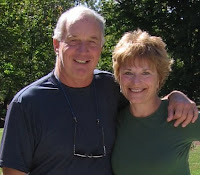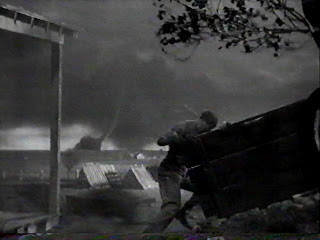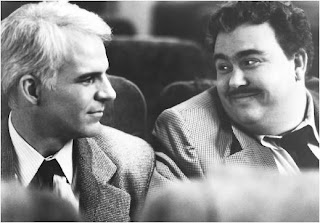It's been a long time coming. But it is on the way now, just like Whiskey's baby.
That's right--Book #7 in the humorous Whiskey Mattimoe Mystery Series will be out soon (Exact Launch Date TBA).
As series readers know, we left off with Whiskey and Soda, in which our protagonist narrowly escapes death by arrow and solves a murder that occurs before her very eyes. Of course, she must also cope with the antics of Abra the Afghan hound and being six months pregnant.
Fast forward three more months, and you have
Whiskey, Large
by Nina Wright
Nine months pregnant, real estate broker Whiskey Mattimoe is literally living large. She needs a driver now and a nanny very soon. Magnet Springs is re-branding itself as a pet-friendly vacation destination, and the transition is bumpy. Someone is shooting at unleashed dogs, including Whiskey's own escape artist Abra. The shooter could be a disgruntled resident, a crazed tourist, or someone closer to home. More important, why doesn't Whiskey's husband answer his cell phone? Who's going to drive her to the hospital when her water breaks?
Viewing Blog: Nina Wright, Most Recent at Top
Results 1 - 25 of 42

I'm Nina Wright, author of the Whiskey Mattimoe mystery series (Whiskey on the Rocks, Whiskey Straight Up, Whiskey & Tonic) as well as Homefree, and other books. I'm also a playwright and writing coach.
Statistics for Nina Wright
Number of Readers that added this blog to their MyJacketFlap: 3
Blog: Nina Wright (Login to Add to MyJacketFlap)
JacketFlap tags: Add a tag
Blog: Nina Wright (Login to Add to MyJacketFlap)
JacketFlap tags: Michigan, death, Wall Street Journal, real estate, cozy series, abra the afghan hound, michigan realtor, dog mysteries, michigan mystery, Magnet Springs, Add a tag
 Ms. Tanaka was intrigued by my choice of a Realtor as a mystery series protagonist. I explained that a real estate agent has access to properties and people in widely varied conditions. Setting my Whiskey Mattimoe mysteries in a resort town lets me create colorful characters drawn to a charming and expensive setting. If a character isn’t acting out while on holiday, he or she is probably making a living from those who are.
Ms. Tanaka was intrigued by my choice of a Realtor as a mystery series protagonist. I explained that a real estate agent has access to properties and people in widely varied conditions. Setting my Whiskey Mattimoe mysteries in a resort town lets me create colorful characters drawn to a charming and expensive setting. If a character isn’t acting out while on holiday, he or she is probably making a living from those who are.Blog: Nina Wright (Login to Add to MyJacketFlap)
JacketFlap tags: Add a tag
My publisher is running a couple weeks behind schedule in getting Whiskey and Soda ready for market. But I can personally promise you that the final product--available in print & ebook by June 15th--is well worth the wait!
To whet your whistle for the sixth rollicking mystery starring Abra the Afghan hound, the Original Bad Girl of Dog Fiction, I'm slipping you a sneak peek at both the book cover and the story:
Blog: Nina Wright (Login to Add to MyJacketFlap)
JacketFlap tags: craft of writing, cozy series, abra the afghan hound, michigan mystery, Add a tag
Just a quick note--more of an exclamation, actually.
Today is a good day online for Whiskey Mattimoe and her Afghan hound, Abra!
The series is featured on two esteemed author blogs. First, there's an interview on Debbie Diesen's "Michigander Monday". Debbie knows all the right questions to ask about Whiskey's origins in the Wolverine state.
Second, author Gary Ponzo posted an interview on his Good Reads site. Gary asks savvy questions about the differences between writing for the page and the stage.
Blog: Nina Wright (Login to Add to MyJacketFlap)
JacketFlap tags: Add a tag
 Here’s a little story about a bigger story: A few years ago, I moved to Dallas, Texas, in order to take a teaching job at a prestigious school. Although I met lovely people there, I deeply missed family and friends back in the Land of the Great Lakes. During my time in Dallas, death claimed someone very near to my heart. A combination of homesickness and grief led me back north, where I intended to resume my fiction writing career. However, my original publisher had made a decision not to continue the Whiskey Mattimoe series.
Here’s a little story about a bigger story: A few years ago, I moved to Dallas, Texas, in order to take a teaching job at a prestigious school. Although I met lovely people there, I deeply missed family and friends back in the Land of the Great Lakes. During my time in Dallas, death claimed someone very near to my heart. A combination of homesickness and grief led me back north, where I intended to resume my fiction writing career. However, my original publisher had made a decision not to continue the Whiskey Mattimoe series.Then I found a new publisher, Martin Brown/Ampichellis. Together we are extremely pleased to present Book #6 in the humorous Whiskey Mattimoe mystery series starring Abra the Afghan hound, the original Bad Girl of Dog Fiction. The new book, Whiskey and Soda, is due out in both trade paperback and ebook formats at the end of May 2012.
For more information about the new book and insights into the series, I urge you to check my Whiskey Mattimoe blog and/or my Amazon Author Central Page. The bottom line: Abra is coming back, and she’s in more trouble than ever. So is Whiskey, her reluctant “owner.”
Their madcap misadventures continue in Magnet Springs, Michigan, with friends and felons both new and familiar. I urge you to read it. And I sincerely thank my readers for letting me know they wanted more Whiskey. Cheers!
Blog: Nina Wright (Login to Add to MyJacketFlap)
JacketFlap tags: Add a tag
Dear Readers,
Apologies! I've been away from the blog scene while relocating my life and work to a whole new part of the country. But I surfaced today for an interview with the talented E.B. Davis on the Writers Who Kill Blog. Please check it out and support the writers posting there. I'll be back online just as soon as humanly possible. Meanwhile, happy reading to y'all! Spring is coming; I can tell by the birdsongs that serenade me while driving to my new day job. Be well.
Blog: Nina Wright (Login to Add to MyJacketFlap)
JacketFlap tags: Add a tag
 en years ago when her unemployed drug-addled husband became physically abusive, and she had to leave. In a grueling divorce, she lost her home, money and belongings. Soon she lost both parents, too. She’s been hard-pressed since the divorce to find a job that pays a living wage. There have also been health problems.
en years ago when her unemployed drug-addled husband became physically abusive, and she had to leave. In a grueling divorce, she lost her home, money and belongings. Soon she lost both parents, too. She’s been hard-pressed since the divorce to find a job that pays a living wage. There have also been health problems.In search of employment she moved alone to a large city in a less downsized part of the world. She did find work but was homesick to the core. We who deeply love her agreed that she was not in the right place. This is a woman who worships fresh air and open spaces. She used to hike miles every day through woods and hills; she lived on a farm, for God’s sake. Not a good candidate for a crowded city of concrete, smog, and steel. Still, she willed herself to work and live and make friends there for a couple years.
Six months ago, she returned to her hometown where she’s renting a room from another friend while looking for work. She’s in her mid-50s, attractive, funny, energetic, and smart. Accomplished, too. This is a woman who shouldn’t be single let alone single, homeless, and out of work. Yet she is all those things in a region still stunned by economic depression. I would be worried about her except that she has one surefire survival skill: a capacity for boundless joy. Her easy laugh, open heart, and agile mind make me believe that things simply have to get better for her--soon.
Recently my friend introduced me to one of her favorite books, Everything on a Waffle, by Polly Horvath. Although written for kids, it speaks to us all. Horvath's heroine, Primrose, is a lot like my friend: darkly funny, resourceful, and imaginative. Primrose steadfastly refuses to believe that her parents are lost at sea. While she awaits their return, counselors urge her to be realistic and face her losses. She is shuffled from home to home and survives several nasty accidents, losing a couple digits but never her optimism. She meets fascinating folks, most of whom don’t help her much. In fact, the most dangerous turn out to be those in the helping professions. Upbeat and open to new adventures, Primrose finds delight in unexpected places, including a restaurant that serves . . . you guessed it . . . everything on a waffle. In Horvath's story, hope rises when and where you wouldn't think it could live. Such is my friend's conviction.
'Tis the season to count our blessings. We often focus on what’s missing in our lives rather than what we are blessed to have. In so doing, we risk allowing that empty place inside to swallow the light around us. The remedy? Be a little bit like Primrose and my pal: Laugh because you can. Love because you want to. Believe in better times to come even when you have no clear reason for doing so. Irrational joy may be the most rational skill we can cultivate.
Blog: Nina Wright (Login to Add to MyJacketFlap)
JacketFlap tags: Add a tag

Teaching something is the best way to learn it. Ask any teacher.
Whenever I teach, I learn . . .
1) how much I know--and don’t know;
2) what my students want and need to know;
3) how my students like to learn.
Contrary to what you might think, teaching is not the opposite of learning. It’s a component of learning. As we master something, we discover that we can demonstrate and explain it to others. We want to use what we learn. Likewise, no matter how many times we teach the same material, we find something new in it. Something personally relevant.
Teaching begins with deconstruction, taking something apart in order to put it together as if for the first time—step by step, piece by piece, test driving the product along the way. Occasionally, while teaching, we may be able to skip a step or two; more often, we channel Sisyphus. When or if leaps and bounds of learning occur, they are a thing of beauty and likely to be cited as The Reason We Teach.
Of course, parents teach, too, in more intimate, ongoing, and unpredictable contexts. With no time to prepare a lesson, they may be called upon to answer questions ranging from “How does electricity work?” to “Why start a war when so many people end up dying?”
Teaching, then, is not the exclusive domain of professionals. Yet those who teach for a living spend their days doing it and analyzing the results. Even as educators embrace new teaching tools and strategies, the challenge remains to take something apart and put it back together so that it’s fresh, vital and useful to students.
For me, teaching—like writing—begins with imagining something from other points of view. Whenever I do that, the wh- questions rain down on me, and I am invigorated.
Last week I was in Elgin, Illinois, teaching story-building skills to a talented group of middle-schoolers enrolled in S.C.O.R.E. (Students Creating Opera to Reinforce Education). We spent four hours playing with the 3P’s of Story Building: People + Problems = Plot. Because characters want and need things even as they dislike and fear other things, trouble (that is, The Story) begins. My students came up with endless combinations of characters, situations, and “what-ifs,” acting out many of them.
We piled on the problems, forcing our protagonist to make harder and harder choices as the story unfolded. In the process of moving from plot point to plot point, we discovered a simple truth: Reaching past the obvious first choice is usually the way to go! While it may be helpful to acknowledge easy or clichéd options, a narrative built on choices and outcomes that nobody could predict is infinitely more satisfying.
Life tends to work that way, too. . . .
I’m blessed to divide my time between writing and teaching. The variety keeps my skill sets sharp and increa
Blog: Nina Wright (Login to Add to MyJacketFlap)
JacketFlap tags: Add a tag
Reactions to my double-death-dodges have varied from “Guess your time isn’t up” to “I’d watch my back if I were you” although some people are more spiritual in their word choice. This appears to be another of those infinitely numbered issues on which the world is divided into two points of view: either I was spared, or “they” (whoever that is) missed me that time. In the former scenario, I should be grateful. In the latter, I’d better be watchful.
Back in July, I had just passed under a spectacularly tall cottonwood when I heard a resounding crack, a whoosh and a thundering thud, and felt a fan of displaced air. Without having to move, I was clear of the death-branch, though not by much. I spun around and stared at the expanse of wood and greenery that logic told me was supposed to remain aloft. My mind slowly registered what had occurred. And what had not occurred.
In September, the ominous thunder roared directly over my head. KA-BOOM. Although my physical response may not have been graceful, it was automatic. I did not look up or around. I darted across the one-lane road to the edge of the wetland, my feet sliding to a stop at the same instant the gargantuan half-tree struck the ground. I watched it bounce in place and settle.
What I wonder is whether my quick reaction the second time was a learned response, thanks to my experience in July, or a reptile-brain response based on the proximity of the unnatural noise. In other words, was I stunned and slower in July because I had had no personal experience with spontaneously falling tree limbs, or because my brain knew before I did that I was clear of the kill-zone? Was my deft, death-defying sprint in September due to a learning curve or a hardwired neuromuscular reaction that simply wasn’t required in July?
As for the “was-I-spared” or “was-I-warned” debate, I’ll spin it this way: two potentially fatal falling limbs in two months remind me that I’m fully alive. I have things to do, people and critters to love, and no way to know what wonders lie ahead. Fate may play a role, but I’m thanking my higher power first. The mind-body connection intrigues me, too. I’d love to know which matters more, skill-building or biology. What matters most is that I’m still living, still learning . . . and still learning to pay attention.
Blog: Nina Wright (Login to Add to MyJacketFlap)
JacketFlap tags: friends, facebook, youtube, death, social media grieving, Add a tag
That happened to me last week. I had been offline, or more accurately, off Facebook while traveling. On the road, I learned that a former colleague had passed away suddenly. He was one of those people with whom I’d been meaning to reconnect since moving back to this part of the world. But I hadn’t yet made the phone call or sent the email. And now he was gone.
Back at my desk, I opened Facebook and found a friend request from him.
The story gets stranger. Within the past six weeks, I’ve lost four friends, aged thirty-something to seventy. Three of them were—and still are—on Facebook, where they endure like cyber-holograms. Dead but seeking friends and wall comments. Still receiving updates and invitations.
Welcome to social media grieving, yet another function of Facebook, whereby friends can process a shared loss via posts, photos, and links like these:
OMG. I can’t believe you’re dead! It's not right.
Sooooo sad you’re gone. We miss you every day.
What’s it like where you are now? It’s lonely here without you.
Remember this pink t-shirt you gave my dog?
SlingerBabe, sweetie, how are you doing without him? Call me, honey. We’ll go get drunk.
here’s that crazy mexican movie you helped me make, you were funny (via youtube link)
* * * * * * * *
For days I followed the growing lists of posts and added my reflections. For whom were we compulsively posting? Not for our dead friends, of course. They would never see the spike in action on their pages. We posted for ourselves and for each other, creating communities of grief and celebrations of life. Like the rest, I hungrily studied tagged pictures and whole irrelevant photo albums, struck by the disconnect between lively, even silly, images and the knowledge that two of these friends hadn’t been well enough to do anything—I mean, anything—for many months. Yet their robustly grinning profile photos beam at us. Carefree, cancer-free, so far from dead.
A medium as fluid and detached from active life as Facebook can magnify the loss of a friend, especially if we didn’t keep up with him in real life. His lingering presence on a bright, pulsating page promises more than he can deliver, an incompleteness that ought to be resolved. We get souvenirs of time spent elsewhere translated into highly abbreviated snippets. Text messages we would not otherwise have read, let alone wondered about, now confound and haunt us because our friend will never be able to explain . . . why he traveled to Romania . . . what made him try to save that crippled turtle . . . and who the hell is SlingerBabe?
Facebook shows me how many lives I’ve touched and lost touch with, what a minor player I became in the long drama of somebody I almost married. The process of social media grieving is painful, personal, and arguably unproductive. When the friending ends forever, the farewells begin. And go on and on. You have to know when to log off. Especially if, like me, you have books to write and a life to live.
Blog: Nina Wright (Login to Add to MyJacketFlap)
JacketFlap tags: workshop, seminar, on my boyfriends' bicycles, Elgin, nina wright, staged reading, Chicagoland, Add a tag
If you live or work near Chicagoland this coming weekend, and you want to be a writer, come on over!
I'm conducting a workshop to ignite your creativity and motivation.
Date: Saturday, July 10, 2010
Time: 10-11:30 a.m.
Place: Elgin Art Showcase, 164 Division Street, 8th Floor, Elgin, IL
Reason: I like to share. Plus, I'm in town for staged readings of my new play. More about that below.
Do you have a story to tell but don’t know how or where to begin?
Do you wish you could find time in your busy life to write?
Have you started a novel or other writing project and then lost your momentum?
Have you promised yourself that someday you’re going to write a book?
When? How?
Let me show you the way. I'm a novelist and playwright, and I know all about the forces that can keep you from writing . . . and how to defeat them.
My workshop will teach you how to launch, plan, and complete your writing project—no matter what.
If you long to express yourself in writing, I can help you make your creative dream come true.
My 90-minute workshop will get you past whatever hurdles are holding you back. Whether you lack ideas, experience, confidence or time, I offer the tools you need.
Bring a laptop computer or pen and paper—and your desire to write.
For more information, contact [email protected]
Check out the cool City of Elgin page. And as long as you're in town, you might as well stick around for the free staged reading of my latest play, On My Boyfriends' Bicycles. See the blog entry below for details about that. I'd really love to meet you.
Blog: Nina Wright (Login to Add to MyJacketFlap)
JacketFlap tags: on my boyfriends' bicycles, Add a tag

For the first time in years, I recently returned to my play-writing roots and completed a brand-new full-length dramatic comedy.
I'm thrilled to report that On My Boyfriends' Bicycles will have not one but two staged readings in Chicagoland this summer. Director Richard Pahl, well known for his artful casting, has assembled an awesome troupe of professional players as well as a talented design team. I applaud the promotional postcard, pictured here.
Of course, I'll be in Elgin for the big event; I'll also teach a writing workshop while I'm in town.
I'll post more info here soon. In the meantime, get out there and ride your bike. It's officially spring at last!
Blog: Nina Wright (Login to Add to MyJacketFlap)
JacketFlap tags: Add a tag
Evening view from my office window: it's white and wet out there.
Blog: Nina Wright (Login to Add to MyJacketFlap)
JacketFlap tags: snow in TX, Add a tag
An unsual sight from my office window in Dallas
Blog: Nina Wright (Login to Add to MyJacketFlap)
JacketFlap tags: Add a tag
 When invited to speak about the “magic of being an author,” I immediately considered the euphoria that accompanies being published: the enchantment of seeing your name in print, the heady power of creating a whole series of books in which characters grow, change, and even give birth. I thought about my own heroine Whiskey Mattimoe discovering she’s pregnant in her latest mystery, Whiskey with a Twist. A development I didn’t see coming. That's the real magic of being an author.
When invited to speak about the “magic of being an author,” I immediately considered the euphoria that accompanies being published: the enchantment of seeing your name in print, the heady power of creating a whole series of books in which characters grow, change, and even give birth. I thought about my own heroine Whiskey Mattimoe discovering she’s pregnant in her latest mystery, Whiskey with a Twist. A development I didn’t see coming. That's the real magic of being an author.
Sure, it’s thrilling to see your stories bound into books and translated into languages you can’t speak. But I wouldn’t call that magic. What mesmerizes me is the creative process, whether I’m working as a novelist or a playwright, hoping my words will come to life on a published page or a lighted stage. Trusting a higher power—Divine or otherwise—to work through me ignites an engine of creativity that I can neither explain nor take credit for. However, I do know how to conjure it.
For the magic to happen, I have to be engaged in my craft, committed whole-heartedly to a project. That might be a symptom of my stern Midwest-Swedish upbringing, a life of dark Lutheranism leavened only later by Saint Garrison Keillor. This writer was raised to work hard and take every day seriously. Although I now find that life makes sense only if we laugh about it, I still work hard.
My muse is no fairy godmother waving a wand above my idle brain as I await a story’s arrival. She’s more like a magician for hire, willing and able to produce amazing feats if I pay my own way. Do I want to “channel” voices and scenes? Then I must pony up some dedicated desk-time, actively immersing myself in the world of my fiction. For me, thinking or talking about writing isn’t writing. Neither is Googling, as productive as it may seem. For me, the way to invite the magic in is to roll up my sleeves and write, write, write.
But what about those times when I can’t write because the insights aren’t coming? My story is stuck. My characters are flat. Nothing short of magic will do. Here’s how I get some:
by writing without trying to write (drafting a scene just for fun, skipping to the end or the next “easy” part, interviewing characters, turning a story into a script or vice versa)
by reading earlier scenes aloud
by thumbing through my Idea Notebooks
by taking my draft to my critique group
by going for a long walk, swim, or bike ride
by washing my car in the rain (works every time)
by grabbing my man or my cat and dancing (dipping is required)
Those are my incantations. I may have to try more than one, but the magic will come.
Sometimes the magic appears before I know I’ll need it. I may dream a scene or a character so vivid that I add it at once to my notebook even though it has nothing to do with my current projects. My muse knows I’m working, so she rewards me. I like to think she pays it forward.
As I tune in to overheard pieces of conversation, posted signs, and bizarre situations, I write them down; if I mishear or misread, so much the better: Lapgevity, the sign in front of a business, looked to me like Largevity and spawned a brood of amusing notions. By recording my inspirations, I invite the magic and encourage my muse. The result is a stock of fiction fodder I can turn to whenever I’m stuck. As I thumb through fifteen years of notebooks, I’m amazed at how many notions I’ve morphed into fiction. If something stirs me enough to write it down, I’ve been touched by magic, illuminated by a spar
Blog: Nina Wright (Login to Add to MyJacketFlap)
JacketFlap tags: Add a tag
I'll admit that it took me awhile to find true beauty in Dallas. Finally I found it at the Arboretum, the Diamond of the Big D.
Below are a few photos I shot there last fall. The first one is my fave.



Blog: Nina Wright (Login to Add to MyJacketFlap)
JacketFlap tags: Add a tag
I’m ready to go. Again.
Last week I flew to the Lone Star State. This week my destination is the Sunshine State.
Sound like fun? Not entirely. This is all business travel, all the time. Of course I promote my books wherever I go; however, my reason for traveling is pure survival: I need a new day job, so in order to get one, I’m going where the jobs are.
Where the jobs aren’t is here in my corner of Ohio. Sadly, we have the foreclosures to prove it. My lovely oak-lined street has become a depressing place to take an evening stroll because so many homes are now abandoned. This is what you’d call a “nice neighborhood”—situated near a large park and a major university. Unfortunately, people can’t afford to live here because they can’t find jobs here anymore. We're hearing the old joke way too often: "Will the last person to leave please turn out the lights?"
The up side of my situation is that I’m going to have a new series of adventures, probably in a part of the country where I’ve never lived before. And I'm sure it will inspire me to write something completely different because that's what happens every time I move.
The down side is that I have to move. Again. But after moving four times in the past five years, I’ve gotten pretty good at it. I’m ruthless when it comes to deciding what I can live without, a practice that has made me bolder at cutting the flab from my fiction.
Although I'm starting this adventure alone, my fiancé plans to join me. He has a house to sell, and he needs a new job, too. We didn't foresee the problems that make this move necessary; they've complicated our lives. Nonetheless, he's proud of me for being resilient, and I'm proud of him for being adaptable. Many of our friends haven’t changed jobs or homes in twenty years or more. They can’t imagine psyching themselves for interviews and new careers in faraway places.
This much I know: even when you don’t think you have choices, you always have choices. For starters, you choose how to look at every moment of your life. And you focus on the fact that things get better. They do, they do.
Plus, it's all grist for fiction.
Tomorrow I’ll be in the air before the sun comes up. Even if the power goes out as I’m leaving my apartment—which happened last week—I’ll be able to get my automatic garage door open and my car out; I’ve learned how to handle that small emergency. Even if I lose my keys in the parking lot of one airport and don’t discover they’re gone until many hours and miles later when I’m in another airport—which also happened last week—I won’t worry. People find keys, and they turn them in.
Even if nobody found my missing keys, I would have keys again.
Please tell us about your "keys"--your survival strategies, recoveries, or contingency plans. We all got 'em, or we don't get far. My father taught me that lesson long ago. It's still working for him, I might add: today he turns 96!
Happy birthday, Dad, and happy travels, everybody!
Blog: Nina Wright (Login to Add to MyJacketFlap)
JacketFlap tags: Add a tag
by Nina Wright I’m as big a fan of online auctions as the next compulsive shopper. Way bigger than I should be, given the depressed economy and my modest advances to date. So imagine my delight when I discovered a secondary use for auction sites. One that costs me nothing except my time and offers limitless fictional inspiration. Although you can play this game at virtually any online auction site, it’s especially fun at bid4assets.com.
I’m as big a fan of online auctions as the next compulsive shopper. Way bigger than I should be, given the depressed economy and my modest advances to date. So imagine my delight when I discovered a secondary use for auction sites. One that costs me nothing except my time and offers limitless fictional inspiration. Although you can play this game at virtually any online auction site, it’s especially fun at bid4assets.com.
· A low-mileage black 2001 Chevrolet Corvette two-door convertible (minimum bid $11,000)
· A handmade knotted all-silk Oriental runner rug in excellent condition (minimum bid $800)
· A 7-carat Burmese ruby and diamond tennis bracelet (minimum bid $300)
Fusing these elements into a single story premise, I imagined a young auburn-haired woman receiving the Burmese ruby and diamond tennis bracelet from an older man with a mysterious past and dubious taste in jewelry; he collects Corvettes and inherited his late mother’s Oriental rug. Now what kind of trouble is he in with the Feds? Or, in my tale, did he murder his mother? Does he plan to murder the young woman? What’s his game?
 A random surf through Bid4Assets consistently yields intriguing possibilities. Imagine the criminal who would . . .
A random surf through Bid4Assets consistently yields intriguing possibilities. Imagine the criminal who would . . . Or collect a “fine antique” Wagner Turbidimeter, manufactured circa 1925, which according to the post writer would be a “welcome addition to any museum, tech school, or industrial office.” (I must confess I had no idea what a turbidimeter was. But it's fun to pronounce.)
 Or purchase a Pete Rose Gold Signature Series autographed baseball. Not just a signed souvenir, please note, but a GOLD signature on a dramatic BLACK leather ball. The perfect symbol of the dubious career of a flawed baseball hero. A “must have” for sports fans likewise inclined to bend the law.
Or purchase a Pete Rose Gold Signature Series autographed baseball. Not just a signed souvenir, please note, but a GOLD signature on a dramatic BLACK leather ball. The perfect symbol of the dubious career of a flawed baseball hero. A “must have” for sports fans likewise inclined to bend the law. But my favorite Bid4Assets story-starter this week is a replica of Jackie Kennedy’s Minaudier purse, gift from French President Charles De Gaulle in June 1961. That’s right, folks! With its dark red velour lining, push-open catch, and detachable 24kt gold-plated shoulder chain, it comes in the original gift box accompanied by a Camrose & Kross certificate of authenticity. Best of all, it’s “approved by the Jacqueline Kennedy Foundation.” I’m having too much fun imagining the person who prizes that item.
Blog: Nina Wright (Login to Add to MyJacketFlap)
JacketFlap tags: Add a tag
by Nina Wright I’m as big a fan of online auctions as the next compulsive shopper. Way bigger than I should be, given the depressed economy and my modest advances to date. So imagine my delight when I discovered a secondary use for auction sites. One that costs me nothing except my time and offers limitless fictional inspiration. Although you can play this game at virtually any online auction site, it’s especially fun at bid4assets.com.
I’m as big a fan of online auctions as the next compulsive shopper. Way bigger than I should be, given the depressed economy and my modest advances to date. So imagine my delight when I discovered a secondary use for auction sites. One that costs me nothing except my time and offers limitless fictional inspiration. Although you can play this game at virtually any online auction site, it’s especially fun at bid4assets.com.
· A low-mileage black 2001 Chevrolet Corvette two-door convertible (minimum bid $11,000)
· A handmade knotted all-silk Oriental runner rug in excellent condition (minimum bid $800)
· A 7-carat Burmese ruby and diamond tennis bracelet (minimum bid $300)
Fusing these elements into a single story premise, I imagined a young auburn-haired woman receiving the Burmese ruby and diamond tennis bracelet from an older man with dubious tastes in jewelry; he collects Corvettes and inherited his late mother’s Oriental rug. Now what kind of trouble is he in with the Feds? Or, in my tale, did he murder his mother? Does he plan to murder the young woman? What’s his game?
 A random surf through Bid4Assets consistently yields intriguing possibilities. Imagine the criminal who would drive this “old school” ’63 Chevy truck with camper trailer.
A random surf through Bid4Assets consistently yields intriguing possibilities. Imagine the criminal who would drive this “old school” ’63 Chevy truck with camper trailer.Or collect a “fine antique” Wagner Turbidimeter, manufactured circa 1925, which according to the post writer would be a “welcome addition to any museum, tech school, or industrial office.” (I must confess I had no idea what a turbidimeter was. But it's fun to pronounce.)
Or purchase a Pete Rose Gold Signature Series autographed baseball. Not just a signed souvenir, please note, but a GOLD signature on a dramatic BLACK leather ball. The perfect symbol of the dubious career of a flawed baseball hero. A “must have” for sports fans likewise inclined to bend the law.

But my favorite Bid4Assets story-starter this week is a replica of Jackie Kennedy’s Minaudier purse, gift from French President Charles De Gaulle in June 1961. That’s right, folks! With its dark red velour lining, push-open catch, and detachable 24kt gold-plated shoulder chain, it comes in the original gift box with a Camrose & Kross certificate of authenticity. Best of all, it’s “approved by the Jacqueline Kennedy Foundation.” I’m having too much fun imagining the person who prizes that item.
Blog: Nina Wright (Login to Add to MyJacketFlap)
JacketFlap tags: Add a tag
In the middle of the night on a mist-shrouded country road, Michael Starkwedder runs his car into a ditch. When he goes to the nearest house for help, he finds a murdered man in a wheelchair and a woman holding a smoking gun.
That's the opening scene of Agatha Christie’s classic play, The Unexpected Guest, adapted as a novel by Charles Osbourne. No spoilers here, but suffice it to say that the action goes inside-out when Michael Starkwedder arrives.
Precisely what happens when unexpected guests appear on my pages. Even though I (attempt to) outline before drafting, characters I never saw coming invade my plays and novels. In response, I do the only thing I can: sit back and watch as they take over what I erroneously believed was my story.
Case in point:An Ann Arbor-based animal rights advocacy, Four Legs Good (a.k.a. Fleggers), blindsided me while I was drafting the second Whiskey Mattimoe mystery, Whiskey Straight Up. Founded by a veterinarian with a speech impediment and no sense of humor with humans, Fleggers has been shaping my plotlines ever since. Poor Whiskey still struggles with the term “anti-speciesist.” So do I.
Another case in point: A hunky Scot named MacArthur stunned me when he showed up in Chapter One of Whiskey and Water claiming to be a “cleaner.” His biz had nothing whatsoever to do with either yard work or maid service although he did pick up dog shit. You’d have to read the series to appreciate how much that pleased Whiskey. The cleaner revealed many talents, including a knack for erasing celebrity hijinks. And selling real estate. He's versatile enough to resurface in the book I’m writing now, Whiskey with a Twist. I wonder what he’ll do in this one.
Blog: Nina Wright (Login to Add to MyJacketFlap)
JacketFlap tags: Add a tag
A funny thing happened on the way to writing this blog post. I got engaged . . . to be married. Here I was, all set to blog about “unexpected guest” characters—you know, those fictional folks you don’t see coming who nonetheless show up on the page and change everything—when my significant other slipped a ring on my finger. A very nice ring, I might add.
The Unexpected Guest Character post will have to wait because my new status as fiancée has filled my head with entirely different notions. And I’m not talking about wedding plans although The Event will certainly require some forethought. Not to mention the fact that we're contemplating a move to another part of the country. No, what I’m thinking about now is the way my attitudes toward love and lust manifest in what I write.
During the years when my previous marriage—a long one gradually destroyed by his preference for booze over employment—was in decline, the women in my fiction were either leaving their husbands or coping with the death of their husbands. That includes my first teen novel and my first Whiskey Mattimoe mystery. In the years following my divorce, I wrote about women falling into passionate love with thrilling but inappropriate men. Let's just say I enjoyed the research.
My ex insisted he never saw the divorce coming. Being drunk most of the time made it hard for him to keep up. He might have got a clue if he had read Whiskey on the Rocks or Homefree, or even considered the titles. One of my plays offered a big tip: the heartsick protagonist leaves her husband for a fictional character. My protagonist was more desperate than I was.
Enough about what came before. What’s happening now is that I’m engaged to a tender, funny, generous man who puts family and friends first. Although more into sports than literature, he used to be a professional speechwriter; thus, he respects my work. I met my fiancé when I wasn't looking for love, yet I knew almost immediately from our ease with each other that he was Mr. Right. Never mind that he wasn't my “type,” and I'd never written about loving a man like him.
In the movie Definitely, Maybe the hero concludes that finding the right partner may be more a matter of when than whom. Put another way, you have to be ready. I opened my heart and recognized a fine man when I met him. The rest was easy. But if I'd met my guy a couple years earlier, I doubt we would have clicked. Timing, as they say, is everything. And I'll go a step further: anything I've ever tried to force has failed, be it a relationship, a storyline, or a laugh.

Fiction is the realm where I play with my fears and fantasies. But life is where I live them, and it offers more surprises than I can make up.
Blog: Nina Wright (Login to Add to MyJacketFlap)
JacketFlap tags: Add a tag
That’s not a misspelling. Although music moves me as I write, so do visual images, including—yup—cartoons.
Now you know why I subscribe to the New Yorker magazine and have for almost 20 years. My office bulletin board is festooned with recent faves; I rotate them to suit moods and assignments. Current attractions include cartoons by Tom Cheney and P.C. Vey. Since I don't have permission to post them here, I'll (lamely) describe a couple that connect to my work.
You may think I like cartoons because I write mainly humorous stuff. But there’s more to it. I'm in awe of art forms that are at once succinct and insightful. While I, the novelist, trudge through tens of thousands of words to deliver my point, other artists perform their jobs with stunning concision. In that camp I include cartoonists, poets, short-story writers, songwriters, musicians, potters, painters, and photographers, not to mention comedians, floral designers, and chefs. We can appreciate their work in a single sitting, a glance, a gulp. And when it thrills us, we replay it. We view it from various angles. We chew slowly.
A cartoon, like any good picture, is worth a thousand words, and may require as many to describe. You can recount a cartoon to someone who can’t see it, but there’s no way you’ll match the artist's punch. It’s like describing a hedonistically delicious dessert or a brilliant comedic monologue. (Or, for that matter, great sex, but that's for another blog.) In short, you gotta be there.
But cartoonists face some of the same challenges that we novelists do. For instance, they must create a viable world. A favorite Tom Cheney toon features a Realtor showing a property with a gaping hole in the floor through which the cosmos is visible. The Realtor says, "Of course, the real charm of the place is that hole in the space-time continuum."
I write about fantastical phenomena and Realtors, though not always at the same time. Drafting my novel Sensitive, I took pains to vividly render my characters astral-projecting and talking with the dead. Since I had never done either, I had a license to imagine the experiences as well as an obligation to do enough research to get the details mostly right. When we spin suspense fiction, our series protagonists regularly bump up against violent death. Thus we must build a universe on the page that makes heinous crime both shocking and inevitable. Whiskey Mattimoe is a Realtor whose clients have a high probability of turning up dead. I enhance that probability by making Magnet Springs a resort town that attracts the rich and greedy.
Like all true artists, cartoonists make connections where none typically exists. They twist clichés and thwart expectations. And yet they make sense. If they don’t, we don’t "get it," and the cartoon fails. The same is true of the stories we tell on our own broad canvases. Our characters must be recognizable but completely fresh. Our endings must satisfy and surprise as solidly as a single-frame cartoon.
In closing, allow me to describe a toon by P.C. Vey: Two women are having tea. Next to the hostess is a cat wearing a Zorro mask. The hostess says, "I know it's illegal, but quite frankly we couldn't get by without the cash and jewelry he brings home every night."
Yeah, yeah, you gotta see it, and I did. And it started me drafting a new mystery series starring a woman who trains her Devon rex cat to steal. If you think that's impossible, you haven't seen this video or met my Devon rex, Flannery, who as far as I know steals only hearts. Still, Flan gets into enough trouble to make a genuine cat burgler seem plausible. At least in the world of art I can make.
Blog: Nina Wright (Login to Add to MyJacketFlap)
JacketFlap tags: Add a tag

by Nina Wright
<?xml:namespace prefix = o />
In fiction the role of season ranges from texture to plot point to theme. Doctor Zhivago is first and foremost a story of place and time (and character), but the wintry elements are what many of us remember best, especially from the film. Planes, Trains and Automobiles, for all its hilarity, is about Thanksgiving: Steve Martin’s character wants only to be with his family while John Candy’s character has no family and nowhere to go. The Wizard of Oz depends on tornado season to provide a key plot element as well as the revelation that there's no place like home.

Season can be an efficient means of revealing character. How does our protagonist respond to a pile of soggy autumn leaves? The lack of sunlight in winter? An April Fool’s joke? Neighborhood kids playing with firecrackers the week before the Fourth of July?
Season creates reader expectation. For instance, juvenile fiction set in summertime seems to promise a lack of structure and adult supervision. But exceptions abound, as I discovered while playing with notions for my teen novel Sensitive. There could be summer school or summer camp. Or a summer job. The point is that novelists can elect to follow or flout seasonal expectations. Oh, the possibilities inherent in, say, no teachers showing up for the first day of school...or a January that's warmer in <?xml:namespace prefix = st1 />
Season is on my mind, and not just because I’m stuck in
What role does season play in the novel you are writing or reading right now? Does the author comply with seasonal expectations or defy them? How does season impact character, plot and/or theme?
As I write this, a new year is opening before us. Whether the season is sunny, snowy or rainy where you are, I wish you a bright Aught-Eight.
Blog: Nina Wright (Login to Add to MyJacketFlap)
JacketFlap tags: Add a tag
Sensitive, the sequel to Homefree, follows sixteen-year-old Easter Hutton through her first weeks at the mysterious Fairless Grove Academy. The academy is the headquarters of Homefree, an agency dedicated to helping teens with paranormal abilities learn how to use their gifts. Easter discovers that in addition to her unusual talents for time travel, astral projection, and invisibility, she is a Sensitive—someone who can communicate with spirits.
Using her paranormal skills, Easter is called upon to settle a two-hundred-year-old misunderstanding while also dealing with her best friend’s mental breakdown, her own forbidden passions, and the whereabouts of her missing mother.
Author: Nina Wright
Publisher: Flux
ISBN: 0738711705
Trade Paperback
Young Adult/Fiction
Price: $9.95
Available through Amazon, Barnes & Noble, and your local independent bookseller.
Blog: Nina Wright (Login to Add to MyJacketFlap)
JacketFlap tags: Add a tag
By Nina Wright
For three years I was glued to my chair writing one book after another on deadline. Six books, six sales. Very satisfying.
In recent months, however, my goals and my pace have changed. I’ve researched, contemplated, and started a half-dozen fiction projects unrelated to anything I’ve done before. Since I write for younger readers as well as adults, I’m continuously monitoring trends in several markets at the same time that I audition new ideas. Although the “market mindset” is necessary, I find it also potentially distracting and, worse, discouraging. Thus I’ve concluded that it’s time to stop obsessing over what sells and simply write from my heart.
Finding "the way in" is different every time. I vividly recall walking through a cemetery in
When I wrote Whiskey on the Rocks, the book that launched the Whiskey Mattimoe series, I was sharing my rural home with Lucille, a dog rescued in late pregnancy by my then-husband and me. Not remotely an Afghan hound, Lucille was a mutt with fast legs, a scary snarl and bafflingly high self-esteem. Like Abra, she had no apparent maternal instincts and a libido that wouldn't quit. She also had a propensity for chasing anything that promised misadventure. Given the slightest opening, Lucille would take off running full-tilt toward the nearest tavern, which lay on the other side of a vast soybean field. She'd ignore our calls for at least 24 hours before—I swear—she came home stinking of whiskey and cigarettes. I could never figure out what the bitch was up to. So my creativity kicked in. An old friend from college had an energetic Afghan hound; mentally I morphed the two dogs into one and added a healthy dash of imagination. The result was Abra.
What inspires me these days? Mostly, things that go wrong. Or could go wrong, or at least madly off course. Example: While I was grooming my father's cat, the feline kicked a wadded up paper toward me. It contained a confusing partial message written in a cramped hand; my father claimed he'd never seen the note before. Who wrote it, and why did the cat have it? That incident went straight into my notebook of potential story ideas. Since I’m inclined to use the most recent notions, I periodically review older entries to see whether any of those ignite sparks. When they do, it’s the lonely writer’s equivalent of Christmas.
Other ways in: Because I favor visual stimulation, once I get an idea working, I look for photos to feed it. Dozens of pictures of
Music provides another access point. Whiskey and Water, the fourth Whiskey Mattimoe mystery, was fueled by a Barenaked Ladies soundtrack. Imagining Whiskey’s first marriage set to those tunes made the writing not only easier but a helluva lot of fun. My close friends benefited, too; they got copies of BNL’s Greatest Hits.
Now and then I track my dreams, and whenever I do, something intriguing shows up. A Southern woman named Picket Pie came to me in my sleep. She explained that her name was short for Elizabeth Bye and promised she’d be back. Months later she appeared on the page as a leading character in my play Cherchez Dave Robicheaux.
All writers know that the way in is both simpler and more complicated than I make it sound here. I eavesdrop shamelessly; free-associate wildly; take lots of photos; go for long walks, swims, and bike rides; brainstorm exhaustive lists and alternate scenarios; and draft interviews, monologues, dialogues, and character bios. Sometimes I bounce ideas off friends. What’s your way in? The key, I think, is to get out there and in there and turn off your mental critic. Put another way: “Travel boldly, listen closely, and carry a bright light.”
View Next 16 Posts












Just happened across this and hope to see more!